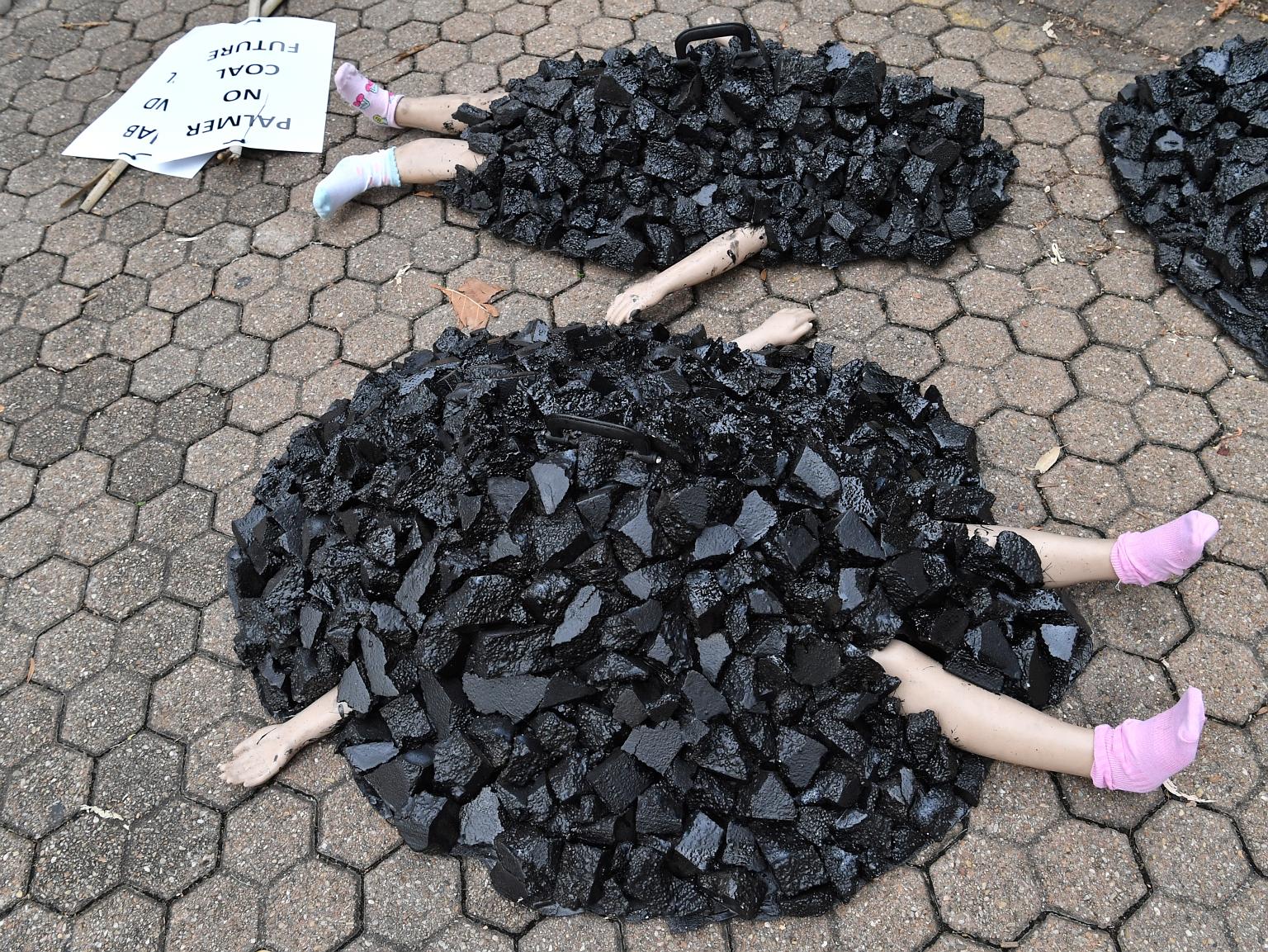Coal will stay important part of economy: Aussie PM
Morrison adamant even as he faces growing pressure to take tougher action on climate
Sign up now: Get insights on Asia's fast-moving developments

Mannequins depicting children covered in coal at an Extinction Rebellion protest in Brisbane, Australia, last week. The country has the world's fourth-largest coal reserves.
PHOTO: EPA-EFE
The swift dumping of former prime minister Malcolm Turnbull as chair of New South Wales' (NSW) Net Zero Emissions and Clean Economy Board early this month - before he even started on the job - has highlighted the extent to which Australia remains committed to the coal sector.
He was to have helped the state move towards clean energy, but had spooked its ruling Liberal-National coalition, which faces an by-election in the coal-mining region, when he backed calls for a ban on new mines in NSW.
Approvals for new projects were "out of control" and coal mining had turned the Upper Hunter Valley region into a "lunar landscape", he said on ABC Radio on March 31.
The coalition dropped Mr Turnbull over concerns about "alienating" its right-wing base.
Australia, which has the world's fourth-largest coal reserves, exported A$56.4 billion (S$57.8 billion) of the commodity last year, mainly to Japan, China, India, South Korea and Taiwan.
Despite growing pressure for Australia to commit to stronger climate action and to wean itself off its reliance on coal, Prime Minister Scott Morrison has insisted that the sector will continue to be an important part of the economy for decades.
But he is under growing pressure to take tougher climate action, especially after nations such as the United States, China and Japan adopted targets of net zero emissions.
Chinese President Xi Jinping last Friday committed to limit the increase in his country's coal consumption to 2025 and begin phasing it out from 2026. In an address at US President Joe Biden's climate summit, he said China will "strictly control coal-fired power generation projects".
Mr Morrison, who also addressed the summit, insisted that Australia would move to "net zero" emissions but refused to adopt new carbon emissions reduction targets. Instead, he highlighted the use of technology to achieve cuts.
Before the summit, he pledged an additional A$539 million to hydrogen production and carbon capture and storage projects.
But international climate politics expert Matt McDonald, an associate professor at the University of Queensland, called the announcement part of a "smoke-and-mirrors approach".
Writing on The Conversation website, he said it "throws a lifeline to the fossil fuel industry and placates internal party dissent, while attempting to appear to the rest of the world that Australia is acting on climate change".
He added: "But the announcement is telling for what it isn't: a clear commitment to achieving net zero emissions by the middle of the century."


